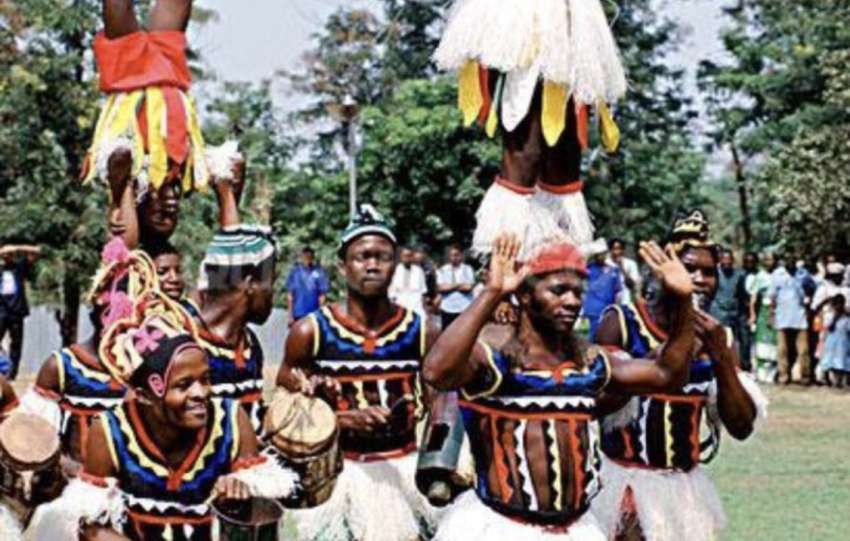Ekpo Masquerade dance in display at Ubakala, Umuahia, Abia State. In a small Igbo village, the annual Ekpo masquerade was held to honor the ancestors. Amadi, a young man, was chosen for the first time to wear the Ekpo Nkak mask, symbolizing the spirit of vengeance.
it is a profound spiritual ceremony that connects the living with their ancestors, honoring spirits believed to guard the community. Each year, the village gathers to witness this event, steeped in ritual, tradition, and symbolism. The Ekpo masquerade is typically held during the dry season and involves intricate preparations, prayers, and offerings. Villagers gather, dressed in their finest traditional attire, and prepare the sacred ground for the arrival of the Ekpo spirits, embodied by the masked dancers.
This year, Amadi, a young man in his prime, was selected to wear the revered Ekpo Nkak mask. In Igbo cosmology, the Ekpo Nkak symbolizes the spirit of vengeance and is a powerful figure within the spiritual hierarchy. For the young Amadi, it was a rite of passage—a significant moment in his life. The responsibility of wearing the Ekpo Nkak mask was a weighty one, as it was believed to carry ancestral power and channel the spirits of the departed. Okoro, his father and a revered Ekpo dancer in his own right, had long awaited the moment his son would assume this role.
His father, Okoro, a revered dancer, reminded him that the mask carried ancestral power. As the drums beat and the masked spirits danced, Amadi stepped forward. Guided by the spirit, he danced with an intensity that amazed the crowd and his father.
As the festival began, the rhythmic beating of drums filled the air, accompanied by chanting and the haunting sound of traditional flutes. The Ekpo dancers, cloaked in elaborate masks and costumes crafted from local materials like raffia, cloth, and feathers, embodied various ancestral spirits, each with its distinct role and personality. Among them, Amadi, as Ekpo Nkak, was the focal point, and his presence commanded reverence from the crowd.
Amadi’s movements were guided by the spirit he embodied. He danced with an intensity and power that left the audience in awe, his steps carefully choreographed yet infused with the raw energy of the ancestral spirit. The dance itself was not merely a performance but a form of communication with the spirit world—a way for the living to seek guidance, protection, and blessings from their ancestors.
After the dance, as the last drumbeats faded, Okoro approached his son with pride. He praised Amadi for his dedication and for honoring their ancestors with his spirited performance. This praise was not only a father’s pride but also a formal acknowledgment of Amadi’s newfound connection to their lineage. The Ekpo masquerade dance, with its layers of meaning and its blending of the spiritual and cultural, solidified Amadi’s role within the community and connected him forever to his heritage.
After the dance, Okoro praised him for honoring the ancestors. Amadi had fulfilled his duty, forever connected to his heritage.
The Ekpo masquerade dance, thus, serves as a reminder of the Igbo people’s rich cultural heritage and the vital role of ancestral veneration in maintaining community values and identity. It illustrates how traditions, passed down through generations, bind individuals to their history and honor the spirits that continue to watch over them.
Reference:
Nwaorgu, O. (1998). Masquerades and Rituals in Igbo Culture. University of Nigeria Press.
Okafor, C. A. (2015). Ancestral spirits and masquerades in Igbo cosmology. African Studies Journal, 56(3), 212-230



